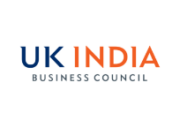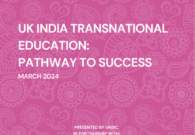Government of India enforces ban on certain Single Use Plastic items
The Government of India’s ban on single-use plastic has come into force today, 1 July 2022. Prime Minister Narendra Modi spoke about India’s move in this direction from the ramparts of the Lal Quila (Delhi’s Red Fort) on Independence Day (August 15) in 2019. Subsequently, on 12 August 2021, the Ministry of Environment, Forest and Climate Change, notified the prohibition on manufacturing, imports, stocking, distribution, sale, and use of all identified single-use plastic items, which have low utility and high littering potential with effect from July 1 2022.
The use of single use plastic is a constant issue in India, as one of the world’s largest producers (behind China and the US) and constrained by limited processing facilities. With a clean, green future the aim, it is only right that such progress is made. However, it is also worth acknowledging the impact the ban will have for businesses and for consumers.
What is the definition of a single use plastic?
“Single-use plastic commodity” means a plastic item intended to be used once for the same purpose before being disposed of or recycled.
How will it be enforced?
National and State level control rooms have been set and special enforcement teams have been deployed to execute the ban on certain single use plastic (SUP) items starting 1 July 2022. The control rooms will function to check the illegal manufacture, import, stocking, distribution, sale and use of banned SUP products across the country. Anyone caught using single-use plastic will run the risk of a five-year jail sentence or a fine of 100,000 rupees (£1,034) or both.
Who is impacted?
The subject ban is to be imposed on manufacturing, imports, stocking, distribution, sale, and use of all listed single-use plastic items. Items such as plastic cutlery, ice cream sticks, and film on cigarette packs are included in the ban. Plastic bags of less than 75 micron thickness too are in the list, this is anticipated to harbour innovation, especially for more plant- based biodegradable products or for plastic products, which are easier to be reuse.
Key Dates on the journey to 1 July 2022
7 February 2011: The Plastic Waste (Management and Handling) Rules, 2011 published vide notification number S.O 249 (E) on 4 February 2011 by the erstwhile Ministry of Environment and Forests (and its subsequent amendments) provided a regulatory framework for the management of plastic waste. The Ministry of Environment and Forests notified the Plastic Waste (Management and Handling) Rules, 2011 to replace the earlier Recycled Plastics Manufacture and Usage Rules, 1999 (amended in 2003). (Press Note)
18 March 2016: The Government of India then published the Plastic Waste Management Rules, 2016. The objective was to improve implementation of the existing rules and to incentivise plastic waste minimisation, source segregation, recycling, and to increase the involvement of waste pickers, recyclers and waste processors in the collection of plastic waste. (Plastic Waste Management Rules of 2016).
15 August 2019: Prime Minister Modi calls for India to end the use of single use plastic, raising the possibility of a soon-to-be ban at his Independence Day address.
11 March 2021: The Ministry of Environment, Forest and Climate Change, Government of India published draft rules to amend the Plastics Waste Management Rules, 2016, inviting objections and suggestions from all persons likely to be affected within a period of sixty days. (Draft Plastic Waste Management (Amendment) Rules, 2021).
12 August 2021: The said implementation comes in continuation to the notification from the Ministry of Environment, Forest and Climate Change, Government of India under the Plastic Waste Management Amendment Rules, 2021. (Plastic Waste Management (Amendment) Rules, 2021).
04 February 2022: Notice by Central Pollution Control Board prohibiting production, stocking, distribution, sale, and use of single use plastic items.
1 July 2022: India bans manufacture, import, stocking, distribution, sale and use of identified single use plastic items, which have low utility and high littering potential, all across the country.
31 December 2022: The Plastic Waste Management Amendment Rules, 2021, will prohibit items having thickness less than one hundred and twenty microns.
List of banned single use plastic (SUP) items starting 1 July 2022:
| S.No. | List of Banned SUP Items per 12 August 2021 notification |
| 1 | Ear-bud with plastic stick |
| 2 | Balloon with plastic stick |
| 3 | Plastic Flags |
| 4 | Candy Sticks |
| 5 | Ice-cream Sticks |
| 6 | Polystyrene (Thermocol) for decoration |
| 7 | Plastic Plates |
| 8 | Plastic Cups/Glasses |
| 9 | Plastic Cutlery (spoons, forks, knives etc.) |
| 10 | Plastic Straws |
| 11 | Plastic Tray |
| 12 | Wrapping or packing film around sweet boxes |
| 13 | Plastic/PVC Banners (Not less than 100 Microns) |
| 14 | Wrapping or packing film around invitation cards |
| 15 | Wrapping or packing film around cigarettes |
| 16 | Plastic stirrer |
| 17 | Plastic carry bags (less than 75 micron in thickness) |

 By Shubhi Mishra
By Shubhi Mishra 





